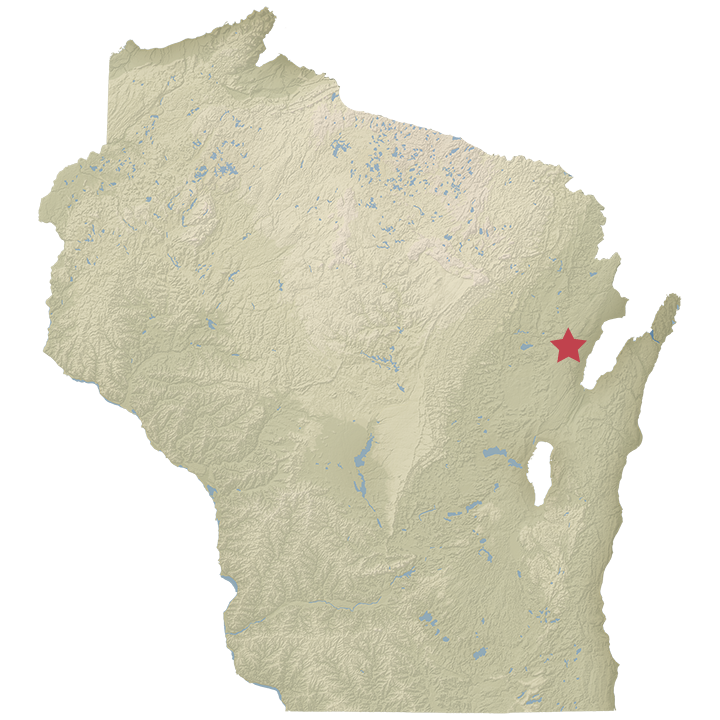
Brief History
The Menominee Indian Tribe’s culture, history, and residency in Wisconsin, and parts of Michigan and Illinois, dates back 10,000 years. In the 1800s, the Menominee occupied a land base estimated at 10 million acres; however, through a series of seven treaties entered into with the United States Government, the Nation witnessed its land base erode to little more than 235,000 acres today. The Menominee means “Wild Rice People”.
The Menominee Indian Tribe of Wisconsin reservation was created in 1854 through a treaty with the U.S. federal government. The Menominee Nation and its reservation boundaries were impacted by the implementation of Public Law 108, known as the “Indian Termination Policy” on June 17, 1954, by the U.S. Congress, which was signed into law by former U.S. President Dwight D. Eisenhower. This provided for the termination of federal control of the Menominee Indian Reservation.
On July 3, 1959, former Wisconsin Governor Gaylord Nelson signed a law making Menominee County the state’s 72nd County. On April 30, 1961, the Menominee Termination Plan was submitted to the U.S. Secretary of Interior. In 1962 the Menominee Council of Chiefs was organized as a non-profit organization ideally for the purpose of preserving the name “Menominee Indian Tribe of Wisconsin”, which was technically abolished during termination. A petition was signed by 780 Menominee requesting the repeal of the termination of the Menominee nation in 1964.
In May 1968 the Menominee filed suit regarding the hunting and fishing rights of tribal members. The U.S. Supreme Court ruled in the Menominee’s favor establishing that when termination was effective it did not relinquish their right to hunt and fish. When the Termination Plan was implemented, enrolled members became shareholders in Menominee Enterprises, Inc. which became known as M.E.I. The M.E.I. Board of Trustees consisted of seven members; three of whom were non-members. In 1968, the M.E.I. entered into the “Lakes of Menominee,” project referred to now as Legend Lake.
In spite of many barriers, the Menominee persisted with their goal of restoring the land to trust status. On April 20, 1972, Wisconsin Senators Proxmire and Nelson introduced Senate Bill No. 3514 in response to the Menominee’s ambition to seek a reversal of termination. On December 22, 1973, former U.S. President Richard M. Nixon signed The Menominee Restoration Act, Public Law 93-19 providing federal recognition of the Menominee Indian Tribe of Wisconsin, returning the nation to trust status and sovereign immunity through the development of the Nation’s constitution and by-laws.
Present Day
Today, the Menominee Indian Tribe of Wisconsin is located approximately 45 miles northwest of Green Bay, Wisconsin. The Menominee Nation is the largest employer in Menominee County. The Nation has four chartered businesses along with law enforcement; a court system; healthcare, such as the Menominee Tribal Clinic; and social services for its members. The Menominee Indian Reservation shares nearly the same geopolitical boundaries as Menominee County, situated on the ancestral homelands of its tribal members.
The Menominee Tribal Legislature is composed of nine members. Elections are held every January. The tribal council meets twice a month and decisions are majority rule.
The Menominee Indian Tribe of Wisconsin and its boundaries enjoy pristine lakes, rivers, and streams, rich forests, and an abundance of plant and animal life. Like other tribal nations across the U.S., they depend on funding provided by the U.S. federal government, especially funding provided by the U.S. Bureau of Indian Affairs and Indian Health Services. Although the Nation has over 8,700 members, less than half are able to reside on the Menominee Indian Reservation.
The Menominee Indian School District was established by the state of Wisconsin in 1976 and its boundaries encompass the Menominee Indian Reservation, making it one of only two public school districts located almost entirely on Indian lands.
The Menominee also have The Menominee Tribal School, a K-8 grade tribally-administered school. The Menominee operate a comprehensive birth-of-five Head Start Program as well as public charter schools. They operate the College of Menominee Nation, chartered by the Menominee Tribal Legislature in 1993. The college was granted full accreditation by the North Central Association of Colleges and Schools (NCA) in 1998.
For additional information about the Menominee Indian Tribe of Wisconsin, consider the following resources:
- Menominee Indian Tribe of Wisconsin
- PBS Wisconsin Tribal Histories: Menominee History
- The Ways: Living Language
The essay was altered and reprinted with permission from the Wisconsin Department of Public Instruction






